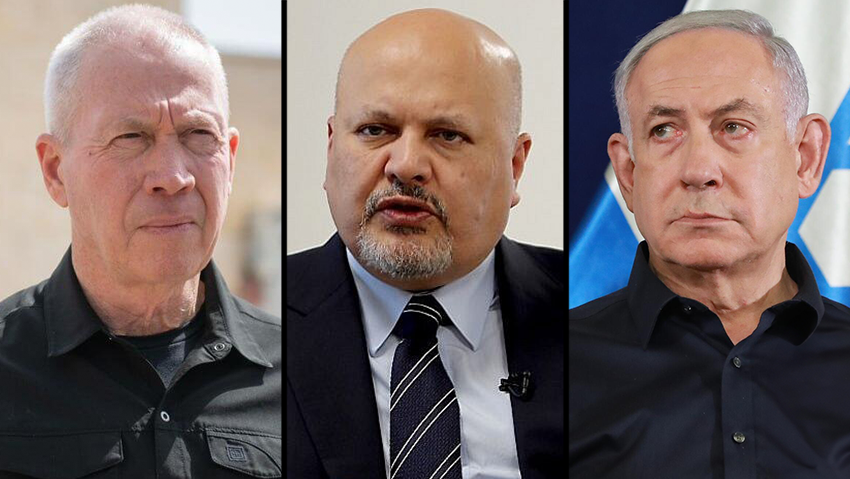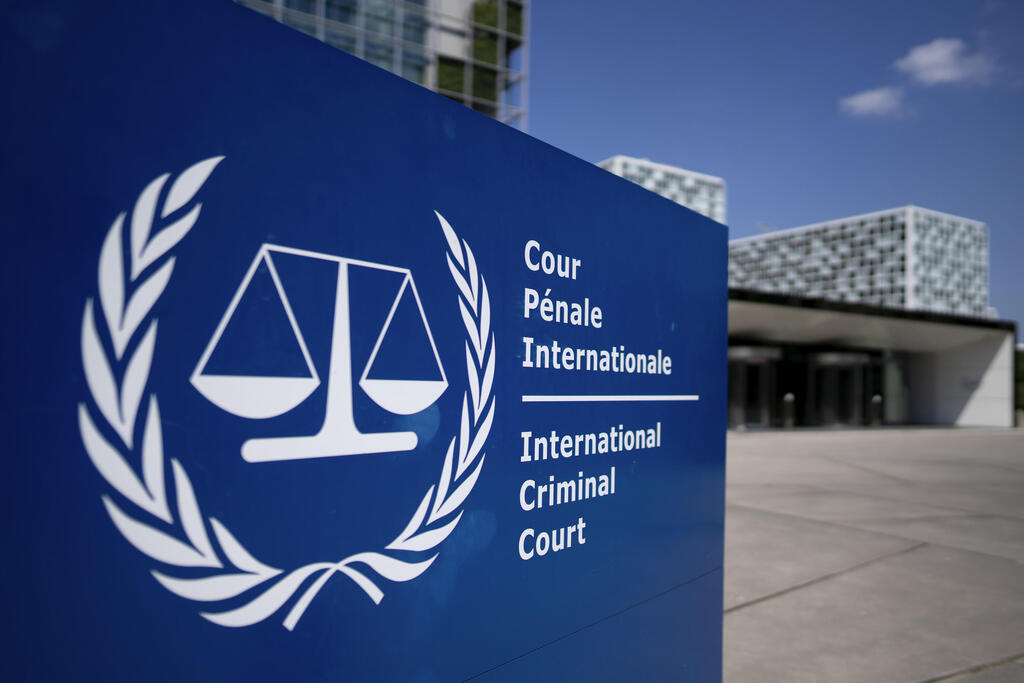Getting your Trinity Audio player ready...
International Criminal Court (ICC) Chief Prosecutor Karim Khan requested on Tuesday urgent arrest warrants for Prime Minister Benjamin Netanyahu, Defense Minister Yoav Gallant and Hamas leaders Yahya Sinwar and Mohammed Deif.
Khan cited concerns about their potential interference with ongoing investigations amid escalating violence in Israel and alleged ongoing war crimes. The prosecutor cited the ongoing crimes of hostage-taking and starvation and emphasized the worsening situation in Israel and the continued offenses as reasons for immediate action by the court's pre-trial chamber.
2 View gallery


Defense Minister Yoav Gallant, ICC Chief Prosecutor Karim Khan and Prime Minister Benjamin Netanyahu
(Photo: Shahar Jurman, AFP, Dana Kopel)
In his filing to the court, Khan expressed frustration with the court's delay in issuing the warrants, urging swift action ahead of Netanyahu's scheduled speech at the UN General Assembly later this month.
Khan had previously pressed the court to rule on the arrest warrants last month, saying that the ICC has jurisdiction to investigate Israeli officials for alleged atrocities in Palestinian territories. He urged judges to act without delay, saying that "any unjustified delay in proceedings harms the rights of the victims."
Khan also called on the court to dismiss legal challenges questioning its jurisdiction in the case, arguing that the court's authority to rule on the matter is firmly established by law.
The decision now rests with the ICC’s pre-trial chamber, which handles cases related to the Palestinians. Under ICC procedure, the chamber may request additional evidence before issuing a ruling. Israeli sources anticipate that the court may respond favorably to Khan’s request and issue the arrest warrants.
Even if warrants are issued against Netanyahu and Gallant, it does not mean they will be immediately arrested. They would only face arrest if they enter one of the 123 countries, aside from Palestine, that are signatories to the Rome Statute.
Notably, the United States is not subject to ICC jurisdiction, but several Western countries, including the UK, France and Canada, are. For context, Russian President Vladimir Putin has faced an ICC arrest warrant for over a year but has avoided arrest by not visiting any countries bound by the Rome Statute until his trip to Mongolia last week. The country, which is a signatory to the Roma Statute, faced backlash for neglecting to apprehend the Russian leader during his visit.




